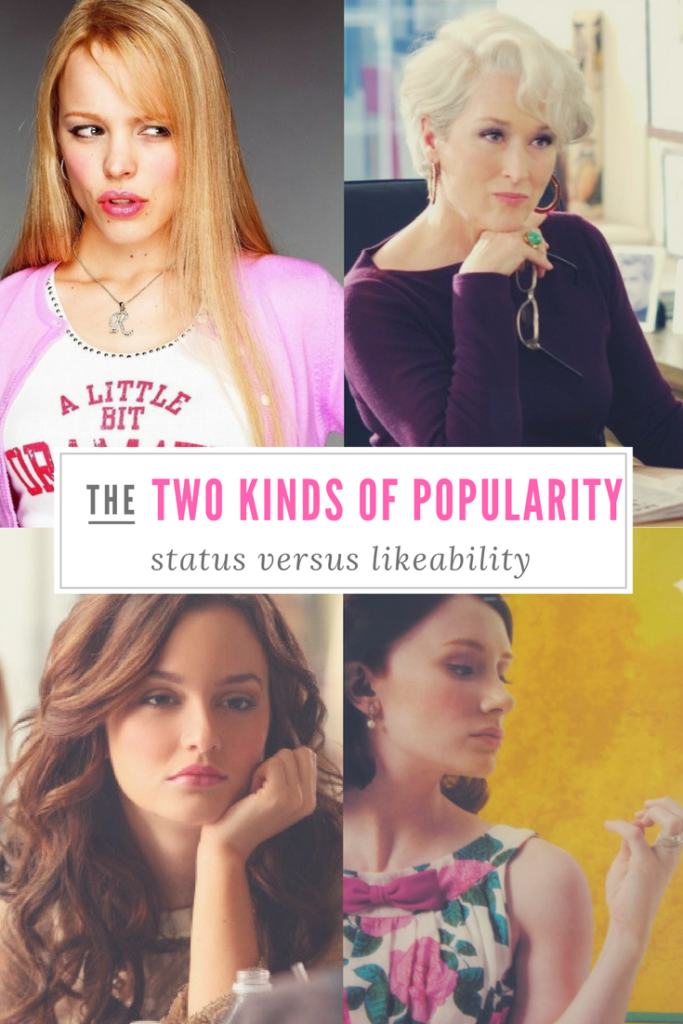Question: when the word “popular” comes to mind, do you feel warm fuzzy vibes or some variation of Mean Girls hell from the hallways of high school? If your answer is the latter, don’t feel bad – movies and pop culture condition us to think that way.
As it turns out, there’s a vast difference between status and likeability. More people confuse status with popularity. They chase it, worry about it and often suffer because of it.
Likeability
It’s essential to know that we’re a liked, trusted and a desirable person to spend time with. Anyone who claims otherwise is in denial. Studies indicate that likeability is beneficial in our lives in both childhood and adulthood.
The good news is that it only takes a few people to like us in order to boost our confidence. We don’t need an army of followers – a small circle of reliable friends who reciprocate our kind gestures is enough.
Status
Status reflects visibility, influence, and power. But it’s more likely to lead to despair and friendship problems. Mitch Prinstein, director of clinical psychology at the University of Carolina at Chapel Hill, says, “It’s a way of dominating others, of trying to feel somehow superior or more influential or visible.”
Consider status-rich figures like Heather Chandler of Heathers, Blair Waldorf of Gossip Girl, and Hilly Holbrook of The Help. They all had beauty, plenty of acquaintances, and material wealth but were feared and disliked by those who didn’t know them well. Their friendships were shallow and often toxic.
At a certain point in life, we figure out that it’s better to have a few meaningful, close friends than dozens of superficial ones. The goal of attaining status is to seem better than others rather than to join others and enjoy life as part of a group. Pursuing status is an easy trap to fall into because there never seems to be enough of it. Once you hit 100,000 Instagram followers you’re bound to want 200,000. If you’re elected class president, you’ll quickly set your sights on the prom court. It’s perpetually unfulfilling.

An increasingly common, modern trap is the way we use social media these days. If you look to social media as a means of comparing yourself to others, based on likes and follows, studies show that your risk for depression is likely to increase.
Even in adulthood, many people wish they had been popular in high school largely because they have a biased idea of what that would have been like. They don’t see the potential for loneliness and the inability to be themselves that comes with status seeking.
What’s important to focus on is the fact that we all have the opportunity moving forward to become likable, and therefore, happier.
Leave a Reply